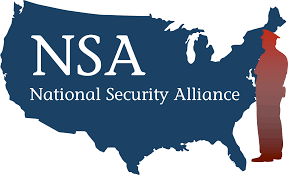
The Crucial Role of Training in Preventing Lawsuits
The Legal Liability of Security Guard Companies: The Crucial Role of Training in Preventing Lawsuits
Randi Sherman
5- Minute Read
Security guard companies are vital to safeguarding people and property. But even though they are first responders, they are not the police and have vastly different responsibilities as to what they can and cannot do on the job.
Legal liability is an ongoing concern. Frequent lawsuits can be highly damaging to a company’s reputation, not to mention the financial burden of being found liable for injuries, loss, or damage because of a guard’s misconduct.
Poor training is often a factor in such legal challenges, highlighting the need for companies to invest in training programs to reduce their liability and mitigate the potential for complaints and injury-causing altercations.
Common Legal Liabilities Faced by Security Guard Companies
Security guards are trusted to keep the peace. As they may be dealing with highly charged situations, they must often make snap decisions about how they respond in the moment. Some of these choices may lead to loss, injury, non-compliance, or various other types of harm, resulting in legal liability for the guard company and/or the guards themselves.
Some of the most common liabilities include:
• Negligence in Duty of Care, i.e., responding too slowly to an emergency or lapses in surveillance leading to loss or injury.
• Improper Use of Force. Guards are limited as to the level of force they can apply. Excessive action could have serious legal consequences if a party were injured.
• Failure to Prevent Crimes like theft, vandalism, or violent incidents when they could have been reasonably prevented, they and the company can be held liable for the loss and damage.
• Inadequate Reporting of incidents or failure to follow proper protocols during an incident can result in legal action for non-compliance.
• Discrimination or Harassment violates a person’s civil rights, including improper treatment or harassing fellow employees.
Examples of Lawsuits Against Security Companies
Lawsuits don’t happen in a vacuum, and legal action can be filed against security companies even if the guard isn’t directly involved. Security lapses and negligence are among the most common reasons for lawsuits against security firms, although sometimes the result can be pretty extreme.
In a particularly disturbing case, an armed security guard fatally shot a man in the parking lot of a shopping mall he was guarding for his employer, a real estate developer
An investigation found that the guard was one of three employees at the company who was not licensed to carry a firearm, even though the company exclusively provides armed security. The family filed a $25 million wrongful death lawsuit against the company.
The law states that security guards can temporarily detain a person until police arrive if they have probable cause to believe a crime has been committed in their presence. They can use only as much force as necessary to defend themselves. In this case, the accused was inside a locked car when the guard fired four rounds into it, killing the man.
While this is an extreme example, it highlights how quickly things can get out of hand without adequate training, certifications, and supervision. The guard was convicted of murder and is serving a life sentence. The company faces an additional $90 million in damages, a liability they share with their employer.
The Legal Case for Adequate Training
Not all liability cases are as dire as the one described above, but that does not preclude liability through civil or legal action.
Because security guards must navigate highly charged and often unpredictable situations, training is essential to ensure public safety, reduce potential harm, injury, or loss, and protect the employer and security company from legal repercussions.
Security companies have a legal obligation to ensure that their guards are adequately trained to handle a range of scenarios, which may require multiple levels of intervention.
While not all states require security guards to be licensed, proper training minimizes liability and provides guards with the skills and knowledge they need to uphold the letter of the law while securing the people and property they are assigned to protect.
At minimum, security guards should be well-trained and/or certified in the following protocols:
· Conflict de-escalation
· Emergency response, CPR, and first aid
· Understanding local laws, legal use of force
· Human rights and anti-discrimination
· Surveillance monitoring and reporting compliance protocols
· Fire safety and evacuation procedures
Since state and local laws vary, training programs should be targeted regionally and provide a solid foundation in federal law.
Security companies are responsible for ensuring their guards are appropriately trained and prepared for their assignments. Consequences may include settlement costs, legal fees, and damages, not to mention loss of brand reputation, low employee morale, and high turnover.
You must also consider that a poorly-trained guard is more liable to be injured themselves, which may also result in a lawsuit under the Occupational Health and Safety Act.
Best Practices for Security Companies
Training programs are a must for security companies. Well-trained employees are more confident, trustworthy, and less likely to have an error of judgment that might lead to a lawsuit or other legal action.
Training programs help to establish consistency across guard teams, improving teamwork and setting a company-wide standard.
In developing a comprehensive training program, prioritize a structured, multi-faceted educational curriculum covering soft skills like communication and conflict resolution and technical skills like surveillance and emergency response.
Stress the importance of documentation and audit coursework periodically to ensure alignment with current laws and best practices.
Guards must learn to operate within the bounds of ethical, safety, and legal standards to avoid violations that could lead to lawsuits.
You may also consider bringing in third-party consultants or legal experts to provide specialized training or audit training programs for legal accuracy.
Using real-life simulations and role-play allows guards to use their knowledge in a practical setting. Some training companies may also offer VR training as a low-risk option.
Ensure guards are prepared for all situations. Violent confrontations, medical emergencies, theft, vandalism, and mental health scenarios are just a few examples.
Lastly, prioritize ongoing training, continuing education, and re-certification. Many states require continuing education to maintain a guard card as a way for guards to stay on top of new trends, emerging regulations, and legal rights.
Final Thoughts
Liability is no laughing matter. Guard companies that invest in training reduce their legal risk and improve service quality, reputation, and employee retention.






